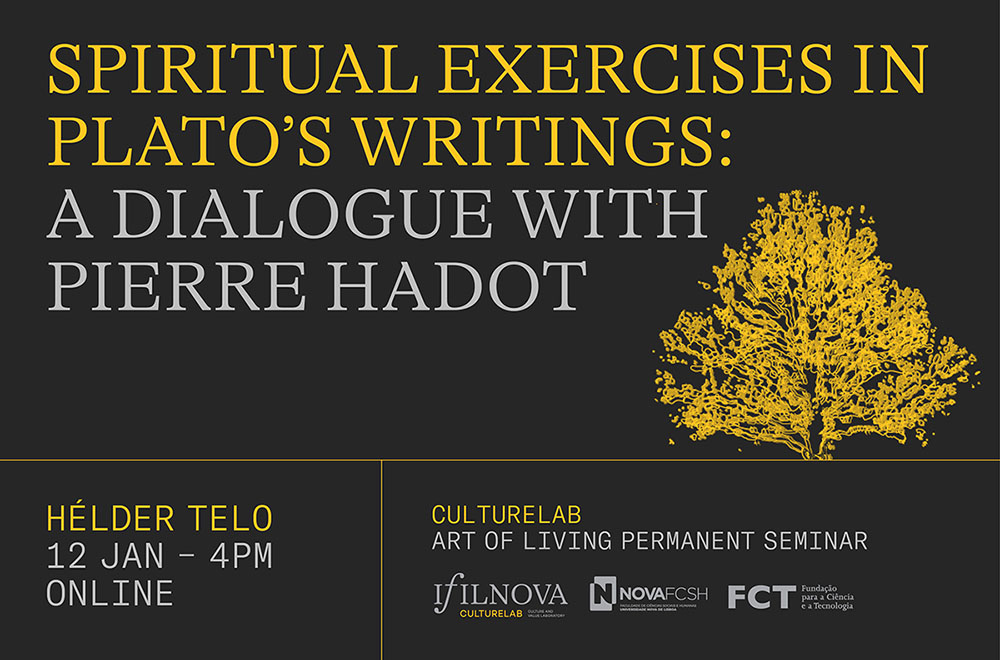Hélder Telo

Hadot famously argued that ancient philosophy had at its core a practical dimension, in the sense of being essentially concerned with transforming one’s way of seeing things, one’s being and one’s way of life. This transformation was carried out by means of what he called “spiritual exercises”. He discussed these exercises at length and provided a rich inventory of them, sometimes referring to Plato’s writings, even though he tended to focus more on Hellenistic and Roman philosophy.
The goal of this paper is to determine the fruitfulness and limits of applying Hadot’s notion of spiritual exercises to the Platonic corpus. I will start by discussing explicit and implicit references to the idea of exercise in Plato, in order to complement Hadot’s references to Plato and, at the same time, show how the notion of spiritual exercise can help us rethink Plato’s understanding of philosophy. Based on this, I will then highlight three essential features of the Platonic understanding of philosophy that are insufficiently explored by Hadot (at least in his general characterizations of ancient spiritual exercises). First, I will argue that at least in several of Plato’s dialogues these exercises should be understood not just as spiritual in a broad sense of the word, but also as exercises of the soul and, more specifically, of the rational part of the soul and its love of wisdom. Second, I will show that in Plato’s case these exercises do not primarily aim at implementing particular philosophical theories or dogmas in one’s life (as some of Hadot’s statements seem to assume), but rather at increasing one’s need and ability to inquire or philosophize – thereby allowing for a less dogmatic understanding of philosophy than the one characteristic of most of Hellenistic and Roman philosophy. Third, I will argue that in Plato’s dialogues there is a deeper intertwinement between theory and practice than Hadot usually suggests, insofar as one must radically transform oneself to be able to understand and accept philosophical theories.
To join the session on Zoom, use this link.

